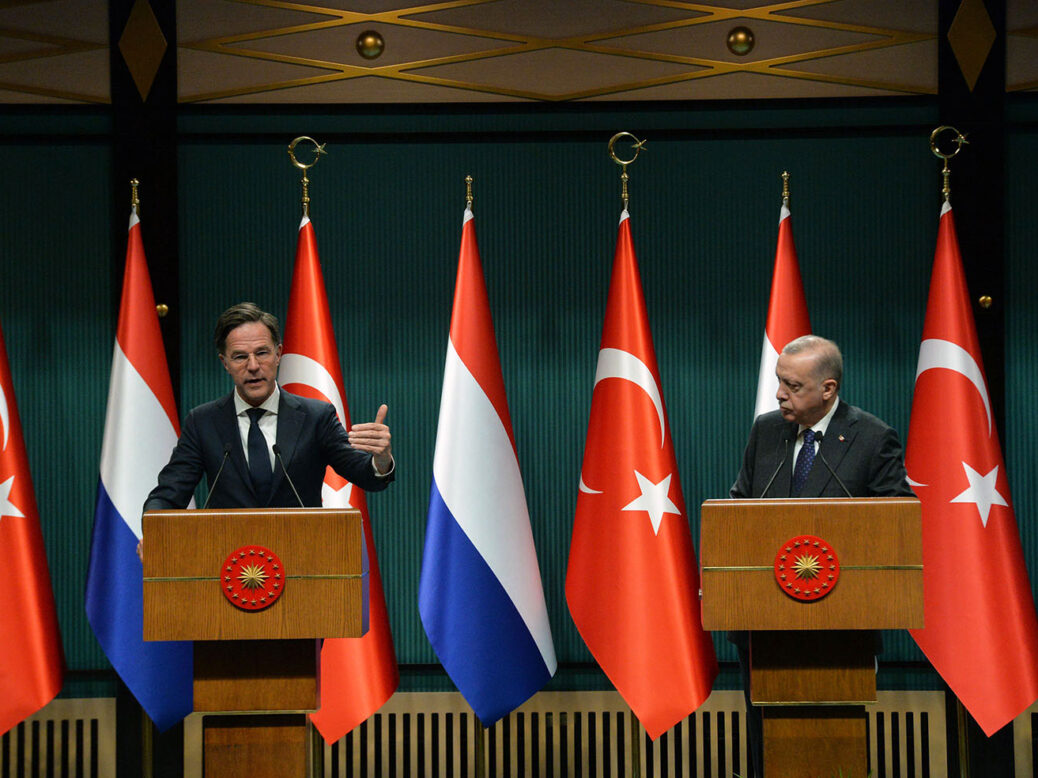
Russia’s invasion of Ukraine has seemingly revitalised the principal political associations of the West. Nato has gone to the limits of what it can do to support a non-member state. Only two months ago, British planes delivering weapons to Ukraine were avoiding German airspace for fear of being denied passage. Now, Berlin is supplying anti-aircraft missiles (if more slowly than Kyiv would like). Although the EU is filling Moscow’s war coffers with energy revenues, the sanctions it has enforced amount to financial war against Russia. These actions, and the rhetoric that has accompanied them, have revived the idea that there is a West that should be defended against Russian and Chinese revisionism.
But this newfound unity disguises a less sanguine reality. Russia has long divided Nato and the EU between the view in Berlin, shared by Paris, and the view in Warsaw, with Washington oscillating between the two depending on who occupied the White House. One side – the Polish – now prevails.
Even before Vladimir Putin’s speech at the Munich Security Conference in February 2007, in which he condemned Nato’s eastward expansion, and the Russian military intervention in Georgia a year later, the Polish government regarded German accommodation of Moscow’s aggressive approach to Ukraine as unacceptable. After Gerhard Schröder’s government agreed in 2005 to build the first Nord Stream pipeline under the Baltic Sea – to bypass gas transit through Ukraine – the then Polish defence minister, Radek Sikorski, compared the decision to the 1939 Nazi-Soviet pact.
[See also: Europe must break its fateful addiction to Russian energy]
With Germany having abandoned Nord Stream 2 on 22 February, the Polish view has been vindicated. This victory goes well beyond the geopolitical ramifications of gas transportation. Berlin failed to contemplate the idea that Russia could pursue all-out war against Ukraine. While the chief of Germany’s navy, Kay-Achim Schönbach, resigned in January after he dismissed any notion that Russia could invade its neighbour, his offence lay largely in publicly declaring a view commonly held in Berlin.
Now, a world-view stretching back to the 1970s, when Chancellor Willy Brandt normalised relations with the Soviet Union, has shattered. Speaking on 24 February, the foreign minister, Annalena Baerbock, said that Germans had “woke[n] up in a different world”. If Olaf Scholz is serious about the EU’s new commitment to phase out Russian energy “as soon as possible”, gone too are the affiliations between German industrial corporations and the Russian state-controlled energy firms, greased by opportunities for personal enrichment, such as Schröder becoming chair of the Nord Stream shareholder committee after leaving office.
But the vindication of Warsaw extends beyond its view of Russian power and aggression. Turkey is another cause of long-term schisms in Nato. In 2003 Germany, France and Belgium vetoed the alliance’s plans for defending Turkey in the event of an attack by Iraq. While in recent years Germany has pursued cooperative relations with Turkey, France has not. When Emmanuel Macron said in 2019 that Nato was experiencing “brain death”, the source of his anger was Turkey’s continued membership of the organisation. In the summer of 2020, after Turkey sent naval ships into Cypriot and Greek waters, the French president dispatched a war frigate to the eastern Mediterranean.
[See also: Profits from fossil fuel energy power Russia’s war machine, and Ukraine suffers]
While Franco-Turkish relations deteriorated, Polish-Turkish relations improved. In May 2021, Poland signed a $270m arms agreement with Ankara. The deal was advocated by advisers to the Polish president who saw the post-Trump American-German rapprochement as necessitating a Polish-Turkish alliance. With the balance of opinion inside Nato having moved to Poland’s advantage, France conducted joint naval operations on 15 March with Turkey in the Mediterranean.
For Nato, any military check on Russia without recourse to direct war requires Turkey. Ankara has obliged by shutting the Bosporus and Dardanelles straits to Russian military ships except for those returning to their Black Sea bases. Since 2019 it has cultivated security links with Ukraine, selling Bayraktar TB2 drones to Kyiv. These unmanned aerial vehicles have proved very effective. Turkey used them to stop the Syrian army’s assault on Idlib, and they were critical in Azerbaijan’s victory over Armenia in the 2020 war over Nagorno-Karabakh. After Ukraine used them against Russian targets on the first day of the war, Ukraine’s air force chief, Lieutenant General Mykola Oleschuk, said they were “life-giving”. Strikingly, they were included in the 2021 Turkish-Polish arms agreement.
But Nato’s divisions over Turkey are unlikely to end soon. One option for the European countries aiming to reduce their gas dependency on Russia is accelerating planned production in the east Mediterranean. But it is precisely Turkey’s confrontational response to its exclusion from these gas projects that stoked Franco-Turkish tensions in 2020. Where energy is concerned, the rhetoric of Turkey’s President Erdoğan is revisionist. For France, that threatens Greek and Cypriot sovereignty. By contrast, the Biden administration was sensitive enough to Turkish concerns to withdraw US support for the planned EastMed pipeline – which would take gas from Israel and Cyprus to mainland Europe – at the start of this year. With a new premium on east Mediterranean gas, what to do about the Turkish premier’s ambitions will become an urgent and difficult question to resolve.
[See also: Why this decade will prove more challenging than the 1970s]
This article appears in the 23 Mar 2022 issue of the New Statesman, A Dream of Britain





